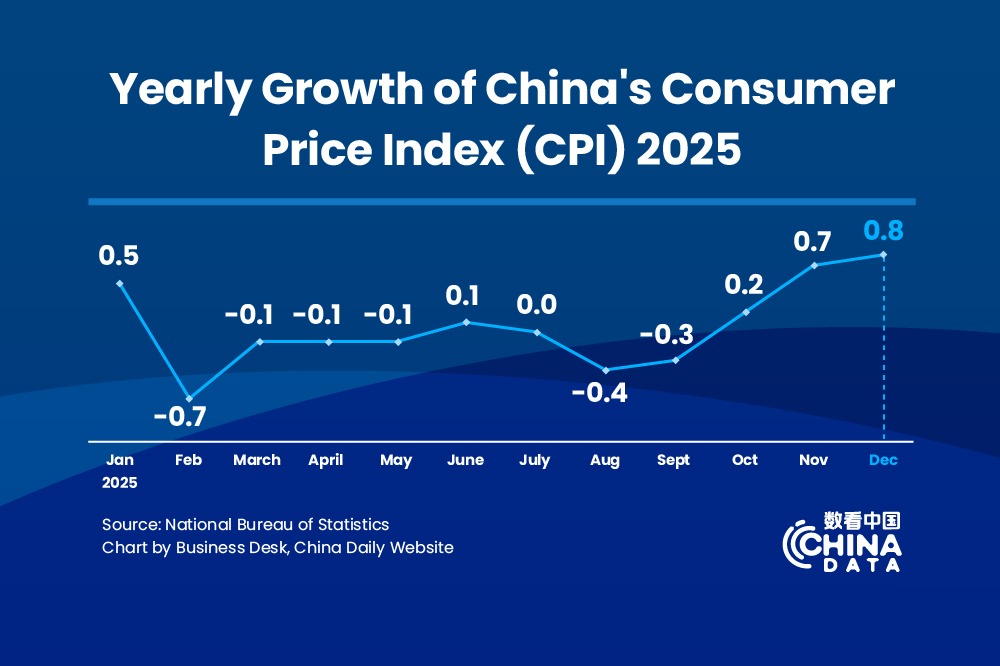Blockchain given vote of confidence


Blockchain is a ledger where transactions of cybercurrencies, such as Bitcoin, are recorded. It works like a chain of digital "blocks" that contain records of transactions.
As of March, more than 5,800 companies in China featured the word "blockchain" in their name, of which 4,586 were registered last year, according to information platform Interchain Pulse, based in Shenzhen, Guangdong province. Meanwhile, 22 blockchain-related industrial zones had been established around the country as of May.
Global market intelligence company IDC expects China's spending on blockchain technology to exceed $2 billion by 2023, with a compound annual growth rate of more than 65 percent and with the banking industry taking the biggest proportion.
Jochen Biedermann, managing director of the World Alliance of International Financial Centers, or WAIFC, an international nonprofit organization registered in Brussels, said Xi's commitment shows the Chinese government is forward-looking and embraces new technologies.
Xi also gives the industry a clear view of which sectors blockchain technology will have the most significant impact on, said Biedermann, founder and CEO of Blockchain Asia in Hong Kong, a company working to connect the industry in Asia and Europe.
"For blockchain in China, this is not a start, but rather a confirmation of the sound development (of this technology), which has already lasted for several years," he said.
"The more-sophisticated foreign investors are very active in China, scouting for talent and promising solutions with local teams, as information is not always easy to access from abroad, given the language barrier and different communication channels."
Last month, Digital Asset stepped up its presence on the Chinese mainland by partnering with Blockshine, a blockchain services provider in Shanghai. The partnership focuses on the financial services industry.
Rooz said he expects Xi's commitment to blockchain technology to open up huge opportunities for the industry.
"When it comes to working in China, you really want to make sure that there is support from the government. Having that kind of announcement (from Xi) is extremely exciting," he said.
Since last year, Digital Asset has worked with Hong Kong Exchanges and Clearing-which operates the Hong Kong Stock Exchange-for which it built a prototype of a blockchain-powered platform for northbound trading under Stock Connect, a mutual market access program linking equity markets in the city and the mainland.
Layla Dong, founder and CEO of Blockshine, which provides blockchain consulting services and implements the technology for companies, organizations and governments in various countries, said that before Xi's announcement in October, many local governments were highly conservative toward foreign blockchain companies. That was because they were unfamiliar with the technology and the changes it can bring to people's lives.
Dong said she expects blockchain to become better recognized with government support, industry standards and continuous education.
She added that one of the first projects the partnership between Digital Asset and Blockshine will take on is related to cross-border blockchain services for a State-owned financial institution she declined to name.
Another international investor looking to the Chinese blockchain market is the hedge fund Polychain Capital, based in San Francisco. In October, the company was reported to have formed a strategic partnership with Nervos Network, a leading public blockchain project in China, following investment by Polychain last year.
Olaf Carlson-Wee, founder and CEO of Polychain Capital, said "great technologies" have emerged in China in recent years, in both deep tech and market infrastructure. "Deep tech" refers to companies founded on a scientific discovery or meaningful engineering innovation, and which also seek to make the world a better place.
"We plan to actively participate in the Nervos ecosystem, work with the founder to build out its community, and drive engagement to the project from blockchain investors and participants globally," Carlson-Wee said, adding that he was impressed by Nervos' developers.
Biedermann, from WAIFC, said Hong Kong and Singapore are often chosen as bridgeheads into Asia for European blockchain projects. Hong Kong's role will be important, especially with the Guangdong-Hong Kong-Macao Greater Bay Area framework, as foreign investors may have difficulty navigating the mainland market.
The blockchain industry in Shenzhen, which is often dubbed China's "Silicon Valley", could also be an excellent starting point for addressing the mainland market via Hong Kong, Biedermann said.
However, Carlson-Wee pointed out that blockchain technology still faces major challenges. One of them, not just in China but globally, is the perception that the industry is still novel, nascent and "incredibly complex" while talent and technology remain spread across the world, making it difficult for more traditional investors to source and finalize quality investments within the ecosystem.
Biedermann said, "Talking about blockchain has become hype, but only a minimal number of people understand the technology behind it and can judge whether it fits a specific use or not", noting the need to invest more in education.
- Australian businesses leave CIIE with plans to return
- China's Hainan unveils measures to foster blockchain industry
- China mounts fight against illegal virtual currency trading
- Chinese blockchain company becomes first of its kind on exchange
- Energy firms betting on blockchain for industry development




































